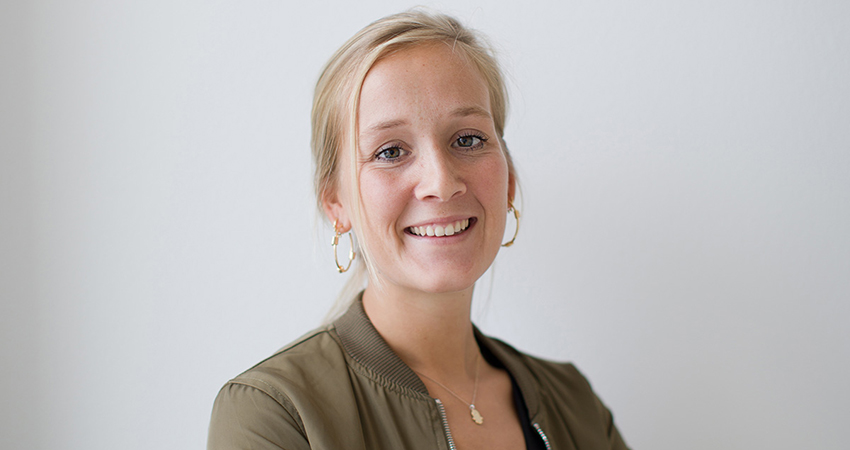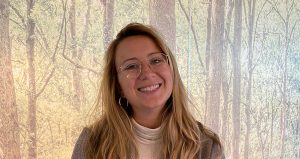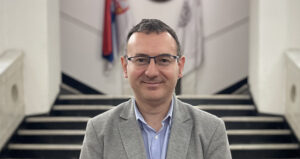Merel: “Climate change can bring us together”

-
 Editorial Team
Editorial Team
Share article:
Merel Mostert from The Netherlands participates in the European Junior Water Programma (EJWP). She is sharing his experiences on Water News Europe. Due to climate change similar problems are occurring in countries that in the past were not used to drought or floods. That is why she thinks climate change can bring us together. “If a problem does not affect you, you may be less motivated to solve it.
Where do you work now?
“I work as a Tender Advisor for the Delfland Water Authority in The Netherlands. This is one of the 21 water authorities in The Netherlands. A water authority is taking care of the water level (with for example pumping stations) is purifying wastewater and managing dikes and clear water.”
What did you study?
“I did my Bachelor of European Studies at The Hague University and after that my Master European Studies at Ghent University.”
What do you hope to learn through EJWP?
“Thanks to EJWP I learn to network and connect with other international professionals. We all have a different backgrounds, in professions as well as in nationality. This makes it challenging and interesting to work together on different projects. It is also nice to get to know other professionals, ambassadors of EJWP and follow workshops. Next to that are the projects challenging, it broadens my knowledge about the water sector in Europe.”
What was your best experience with EJWP so far?
“To meet the team digital was hard in the beginning but I think it has already been very successful. It is such an enthusiastic group and we are all dedicated to the programme, which makes it very nice to work together.”
What have you already learned?
“The communication part, internationally and digitally has been challenging but very useful so far. Also, the value of water was our first project and very difficult in the beginning. It has showed us how different the value of water can be explained and so how broad the topic is in general. Water does not stop at borders, and so working together on a more intense way will be necessary to improve water quality and fight water scarcity.”
What are the benefits of an international network?
“It has showed how things can be interpreted differently. Also the way of communication can vary, which is really nice because you sometimes have to adapt to the others. This also works nationally – and working internationally, not in your mother-tongue, makes it even more challenging.”
What can international water professionals mean for the water sector?
“International water professionals have a crucial role to communicate how important water is to everyone. We need to keep talking at the international level to make a difference in the water sector, and we cannot lose anyone or any country in this sector to make positive changes. An important aspect is that exchanging knowledge and experience will help us better adapt to climate change.
Water scarcity is a climate-related challenge for everyone, and different countries often have their particular expertise in managing water. For example, in the Netherlands, we are proficient in building dikes and Spain is advanced in wastewater treatment. At the EU level, we can share these benefits for all without having to invent the systems again within each country. One thing to consider is that not everyone is facing the same impact. In the Netherlands, our ground in summer is getting drier, but it may not be noticed. In Spain in France, they are planning for long term. It’s human that if a problem does not affect you, then you may be less motivated to solve it. That’s one thing about climate change; it can bring us together to work on these solutions.”
Where or in which position would you like to work in five years?
“Thanks to EJWP I am able to combine my study background and my work in one programme. I hope in the future to continue in this way to combine EU politics with water policy or regulations. I hope I can become a part of the change we need to make about water protection, quality and quantity.”

















